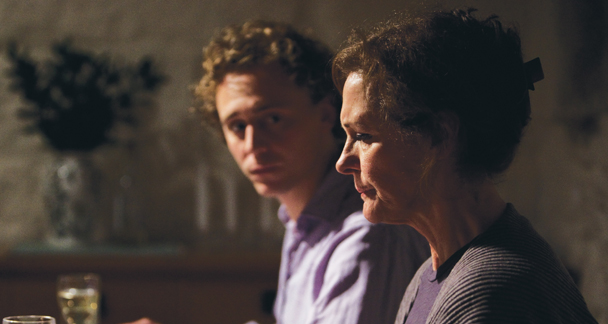Archipelago
Joanna Hogg has cemented her position alongside the likes of Andrea Arnold as a key figure in British cinema.
Plot summary
Edward arrives on a remote island off the English coast, to join his mother and sister who have organised the family holiday to say goodbye to Edward before he embarks on a year of voluntary service in Africa.

Making the move from staple British Saturday night drama to the heady heights of the London Film Festival cannot be easy for any director. The move from complete anonymity to well known and respected feature film director is a privilege only the few – the very talented – can make.
With her second feature film since working on TV shows such as Casualty and London Bridge, Joanna Hogg has cemented her position alongside the likes of Andrea Arnold (Fish Tank) as a key figure in British cinema.
With 2007’s Unrelated, Hogg broke onto the British film scene with a supremely confident, subtly depicted vision of upper-middle class family life. The story revolved around one woman’s tussle with her life; bound in an unhappy marriage and looking for an escape during two families’ joint retreat to Tuscany. Critics hailed her acute skill of creating tension and the naturalism of the script and acting. With her latest feature, Archipelago, Hogg has developed her talents
Archipelago, like its predecessor, is set during a family break. We meet Edward (Tom Hiddleston) as he arrives on the idyllic island of Tresco in the Isles of Scilly, where he is welcomed warmly by his mother Patricia (Kate Fahy) and sister Cynthia (Lydia Leonard). Life on the island is peaceful and time is filled with bike rides, picnics and oil painting lessons.
It is some time into the film before we discover the purpose of the trip. Not one for clumsy exposition, Hogg drops us into a dinner conversation in which we slowly discover that Edward is leaving for an eleven-month volunteering project in Africa. Cynthia is clearly annoyed, seeing his purpose as no more than naïve magnanimity – a quarter-life crisis, perhaps.
The film from there on out is a subtle portrayal of a family having to deal with their insecurities, dutifully attempting to enjoy their stay on the island, whilst really wanting to be somewhere else. To top it off Hogg punctuates the narrative with phone calls from the father who, as we begin to realise, is never coming to join the family.
Like a lot of families however, no one clears the air, everything is swept under the rug, and as an audience you are simply waiting for that moment when the shit hits the fan. That’s what’s so brilliant. Who would have thought the mundane dinner conversations of an upper-middle class family could have you shuffling in your seat? Michael Bay take note: some times a good script and natural, clever acting is all you need.
Lydia Leonard particularly shines amongst an excellent cast, being just as brilliant simply letting her body language speak volumes as when she is verbally assaulting her mother and brother. And it is perhaps a line of Cynthia’s that is the most resonating sentiment. Confronted with the idea of family as the people you love and need the most she, coldly replies: “well that’s just not family is it”.











COMMENTS